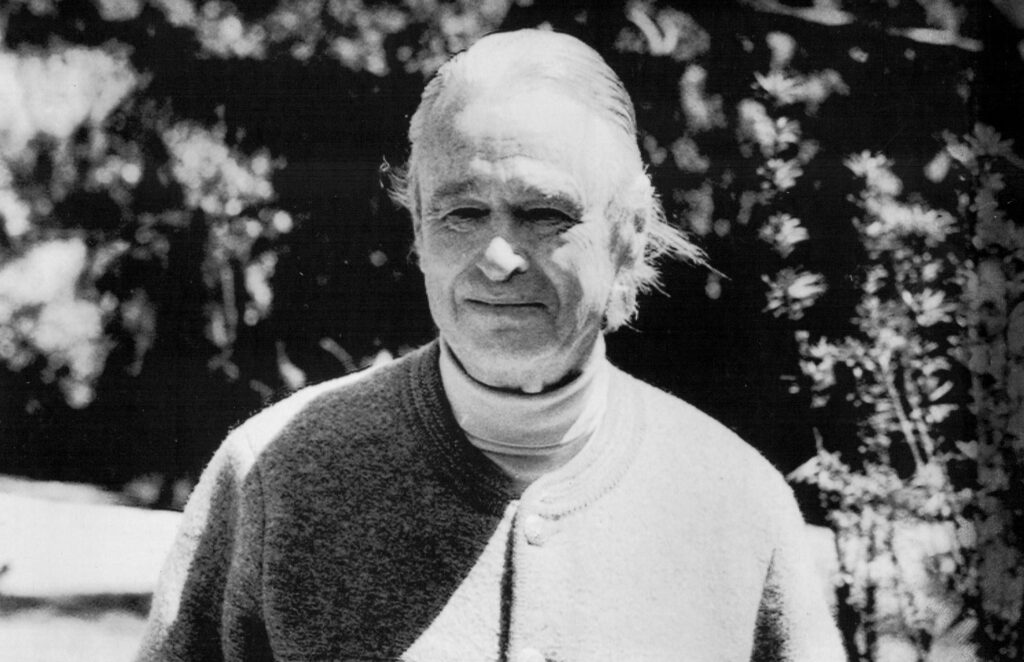Mead Versus Freeman

In this unit (to accompany SAPIENS podcast S6E4), students will learn the counterarguments to Margaret Mead’s 1920s American Samoan research from her harshest critic, Derek Freeman. Students will examine Freeman’s experiences and how he presented his research and conclusions. Students will discuss whether his arguments hold weight and what lessons scholars can learn from the Mead–Freeman controversy.
- Identify the significant milestones in Derek Freeman’s career.
- Investigate Freeman’s critique of Margaret Mead’s work.
-
The idea that an individual’s culture influences their personality, emotions, and behavior.
-
Study of the biological and cultural evolution of humans from the past to the present; includes archaeology, behavioral ecology, psychology, primatology, and genetics.
-
A sharing of characteristics or origins; also used to describe a blood relationship.
-
A way of thinking that dismisses moral considerations and states that laws and rules deride their truth from scientific or mathematical proofs.
-
A method based on the idea that our past shapes our present; it aims to tap into unacknowledged meanings and emotions from past events that influence our current moods and relationships.
- Ask students to examine Freeman’s early career experiences, including his study of the socialization of children aged 6–9 in New Zealand and his 1940–1943 research in Samoa.
- Early in his career, Freeman believed in the idea of cultural determinism. But this changed after his work with the Iban people of Borneo, whom he studied to learn about their social organization and kinship system, which he termed “utrolineal” (i.e., neither patrilineal nor matrilineal). In the 1960s, following a mental health crisis, Freeman struggled to answer questions about the Iban people’s behavior despite having lived with them and realized that “to fully understand Iban religion and ritual, he would have to master the psychological ramifications of unconscious symbolism” (Hempenstall, Truth’s Fool: Derek Freeman and the War Over Cultural Anthropology 2017). Freeman said his illness prompted a revelation in his thinking, and that this, combined with his research on the Iban, led him to pursue a biological rather than a cultural explanation for human behavior. Discuss these divergent viewpoints with students.
- Freeman had two public psychological crises: in 1961 and in 1966. The latter occurred while he was in Samoa and is when he began refuting Mead’s work. He was diagnosed with a bipolar disorder in the 1970s. Ask students to consider how Freeman’s mental health impacted his research.
- Lead a discussion with students about Freeman’s two books criticizing Mead’s work. In Margaret Mead and Samoa: The Making and Unmaking of an Anthropological Myth (1983), he focuses on “the scientific import of these actual researches” and applies a scientific lens to Mead’s claims. In The Fateful Hoaxing of Margaret Mead: A Historical Analysis of Her Samoan Research (1998), he alleges that Samoan adolescent women innocently joked with Mead about their sexual relations, but because Mead did not have a solid grasp of the Samoan language she was unable to differentiate jokes from truth. He also contended that Mead excluded discussions on topics such as violence in Samoan culture, and that she had painted a picture of a utopia that did not align with real life.
- In 1985, the American Anthropological Association denounced Freeman’s first book as “poorly written, unscientific, irresponsible, and misleading.” But the negative reviews only spurred Freeman in his purpose to find fault in Mead’s findings. In 1988, he contributed to the documentary Margaret Mead and Samoa, and in 1998, he published his second book. Explore this development with students.
- Although some anthropologists supported Freeman at the time, many have since reviewed Mead’s work and have concluded that her findings were solid. For example, anthropologist Paul Shankman thoroughly reviewed notes from both Freeman and Mead, presenting his conclusions of the controversy in his 2009 book, The Trashing of Margaret Mead: Anatomy of an Anthropological Controversy. Shankman leaned toward Mead’s work, claiming her points were better researched and presented than Freeman’s. In 2017, historian Peter Hempenstall published Truth’s Fool: Derek Freeman and the War Over Cultural Anthropology, which sought to use facts to depict a picture of Freeman’s complexity. Lead students in a discussion about these two texts.
-
Appell, George. 1984. “Freeman’s Refutation of Mead’s Coming of Age in Samoa: The Implications for Anthropological Inquiry.” Eastern Anthropologist 37: 183–214.
-
Heppell, Michael. 2018. “Freeman and the Abuse of Authority.” Journal of the Humanities and Social Sciences of Southeast Asia and Oceania 174 (4): 450–471.
-
Lougheed, Marion. 2020. “‘Truth’s Fool: Derek Freeman and the War Over Cultural Anthropology’ by Peter Hempenstall.” History of Anthropology Review 44.
-
Shankman, Paul. 2013. “The ‘Fateful Hoaxing’ of Margaret Mead.” Current Anthropology 54 (1): 51–70.
- Freeman said, “The science of man must be biologically based.” To what extent do you agree or disagree? (Quote is from the SAPIENS article “The Life and Meaning of Margaret Mead.”)
- Boasian principles tried to move past 19th-century evolutionary theory. Freeman criticized Mead for pushing Franz Boas’ agenda by making her research fit into the mold of cultural determinism. Do you agree?
- How has Freeman’s critique of Mead’s work evolved or remained steadfast from his early essays in the 1960s and 1970s to his 1983 book and then to his 1998 book?
- What lessons can be learned from how Freeman presented his findings early in his career to how he presented them later?
- How did Freeman’s early work as an ethnographer impact anthropology?
- In his 2018 article, “Freeman and the Abuse of Authority,” Michael Heppell states: “Controversy is important because it can result in inaccuracy being purged and issues being nuanced so that their presentation is more accurate” (452). How does this statement apply to the Mead–Freeman controversy? Consider the importance of criticism and counterarguments.
- Create a timeline of the significant events in Freeman’s professional life.
- Investigate how Freeman researched his critique of Mead’s work and discuss his subsequent presentation of his findings.
- List the reasons Freeman believed Mead’s research was flawed.
-
Book: Margaret Mead’s Coming of Age in Samoa
-
Book: Derek Freeman’s Margaret Mead and Samoa: The Making and Unmaking of an Anthropological Myth
-
Book: Derek Freeman’s The Fateful Hoaxing of Margaret Mead: A Historical Analysis of Her Samoan Research
-
Book: Paul Shankman’s The Trashing of Margaret Mead
-
Book: Peter J. A. Hempenstall’s Truth’s Fool: Derek Freeman and the War Over Cultural Anthropology
-
Film: Frank Heimans’ Margaret Mead and Samoa
-
Interview: “Derek Freeman Interviewed by Frank Heimans”
-
Podcast: New Book’s Network’s Truth’s Fool “Derek Freeman and the War Over Cultural Anthropology”
Catherine Torres, Freedom Learning Group
Nature Versus Nurture
